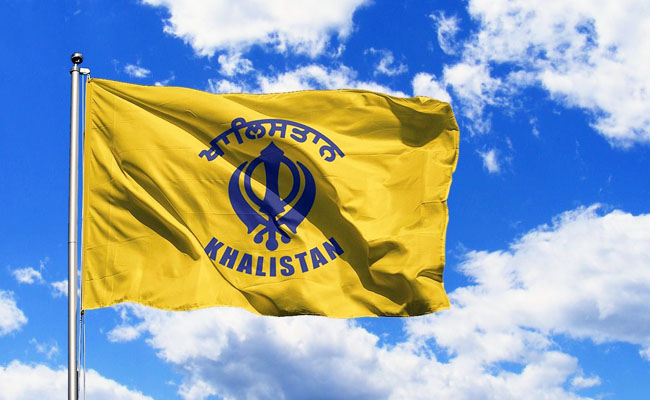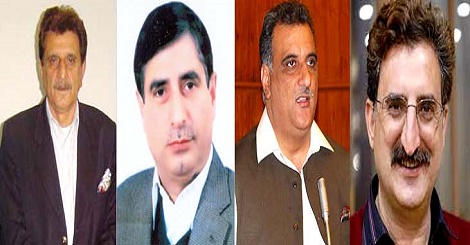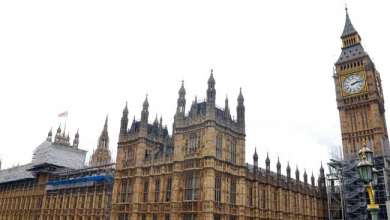No peace in South Asia without buffer states

London: The violent clashes along the LAC in the Ladakh / Aksai Chin region this week between India and China have rightly been the subject of global concern, given the possibility of a wider, catastrophic military conflict between two nuclear-armed states. The chances of Pakistan also joining any such a conflict are extremely high due to sky-high tensions over Kashmir. Worryingly, a major report released this week by the Stockholm International Peace Research Institute revealed the rapid build-up of nuclear weapons by these states, whereas numbers are mostly falling elsewhere.
There is no doubt that India’s PM Modi has suffered a humiliating reality check. Having initially gone in to purdah, he then emerged to issue contradictory statements, effectively admitting failed Indian adventurism in Chinese-controlled territory. It was a disastrously unconvincing effort to maintain his carefully nurtured ‘tough guy’ image.
The BJP’s right-wing Hindutva mindset will perhaps inevitably lead to further miscalculations. Its record of minority-bashing and belligerence towards its neighbours is well documented and already augured badly for the region, but the debacle in the Galwan Valley may lead it to ever more costly mistakes. It should have taken closer note of China’s official reaction to the notorious Article 370 abrogation and purported annexation of the region by the Indians last August: “Such practice is unacceptable and will not come into force.” In light of that statement alone, this week’s clash should not have come as a surprise.
Whilst the World Sikh Parliament condoles with the families of all those who lost their lives at this week’s battle, it cautions people across the region to be wary of political leaders that play with the lives of others merely to showcase their right-wing credentials. It will no doubt take time for grief and anger to subside, but rational analysis of this complex situation must be undertaken without delay if serious solutions are to be identified and implemented.
At this critical time, we also urge the international community to take urgent and meaningful steps to address the underlying causes of the conflicts in the region, so that the ‘unthinkable’ never happens. In doing so, it is important that the Sikh perspective is considered.
The Sikh nation’s homeland in Punjab, as well as the majority of its population, lies directly in the middle of this explosive geo-political situation and faces potential annihilation if India’s right-wingers continue to miscalculate or even deliberately trigger a holocaust. As a key stakeholder, the Sikh nation’s voice must be heard.
The Sikh nation is not a party to India’s conflicts with China, Pakistan or (most recently) with Nepal. As a nation that is peacefully pursuing its own freedom struggle, based on its right of self-determination as enshrined in international law, it espouses good relations with neighbouring states and with other stateless nations in the region.
India has used massive and illegal military force to suppress that legitimate struggle. Sikhs have not forgotten – nor will they ever forget – the Indian army’s genocidal attack on the Harmandir Sahib (Golden Temple) in June 1984 and the decade of mass human rights abuses that followed.
It is both unfortunate and ironic that the Indian media, which is currently in such a tailspin over a handful of casualties, cannot see the obvious contradiction between the willingness of Indian leaders to ruthlessly carry out war crimes on defenceless civilian populations in Punjab and in Kashmir and their cowardly acceptance of what they themselves say is an attack from a fully armed adversary.
The only viable means of both delivering justice to oppressed nations and securing enduring peace in the region is to permanently, physically separate these rival armies – by creating buffer states in the flashpoint regions. Implementing the right of self-determination in Indian-occupied Punjab and in Kashmir, allowing the people of those regions to take control of their own destinies, will deliver conflict resolution in the most dangerous place in the world. Underpinned by international law, this solution offers a principled and impartial approach that preserves the world order as we know it.
Those oppressed peoples are the true stakeholders in South Asian peace and it is time the world starting listening to them. The resolution of this crisis must not be left to the mercy of bruised egos, fascist ideology or concocted territorial claims. This is about tens of millions of real people and their historic homelands whose very existence the world needs to protect. The UN’s ‘Responsibility to Protect’ must surely be activated at this point, if it is to have any meaningful purpose at all.
The World Sikh Parliament therefore calls on the United Nations Security Council to urgently consider our proposals. It also calls on the wider international community to also engage directly with the true stakeholders in the region to help deliver freedom and enduring peace, before it is too late. The cross-border military confrontations between India and Pakistan of 2019 and between India and China this week, amply demonstrate that the time for global inaction with regards to South Asia has long since passed.





